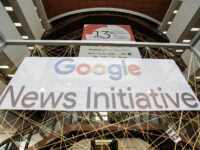Several years ago, the Privacy Commissioner of Canada filed a reference with the federal court in a case that was billed as settling the “right to be forgotten” privacy issue. That may have overstated matters, but the case did address a far more basic question on whether the privacy law applies to Google’s search engine service when it indexes webpages and presents search results in response to searches of an individual’s name. Earlier this month, the federal court released its decision, concluding that it does.
Mark Phillips is a Montreal-based lawyer practicing primarily in the areas of privacy, access to information, civil litigation, and administrative law in both Quebec and Ontario. His client – whose identity remains confidential under order of the court – filed the complaint that ultimately led to federal court decision. He joins the Law Bytes podcast to talk about the case, where the right to be forgotten stands under Canadian law, and what might come next.











